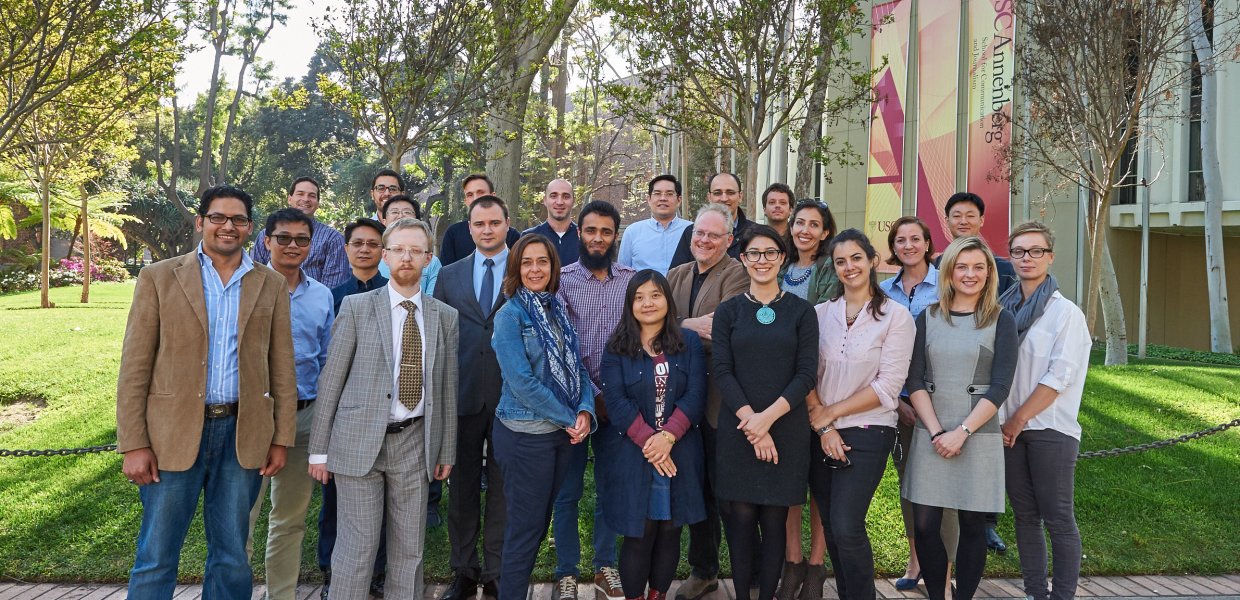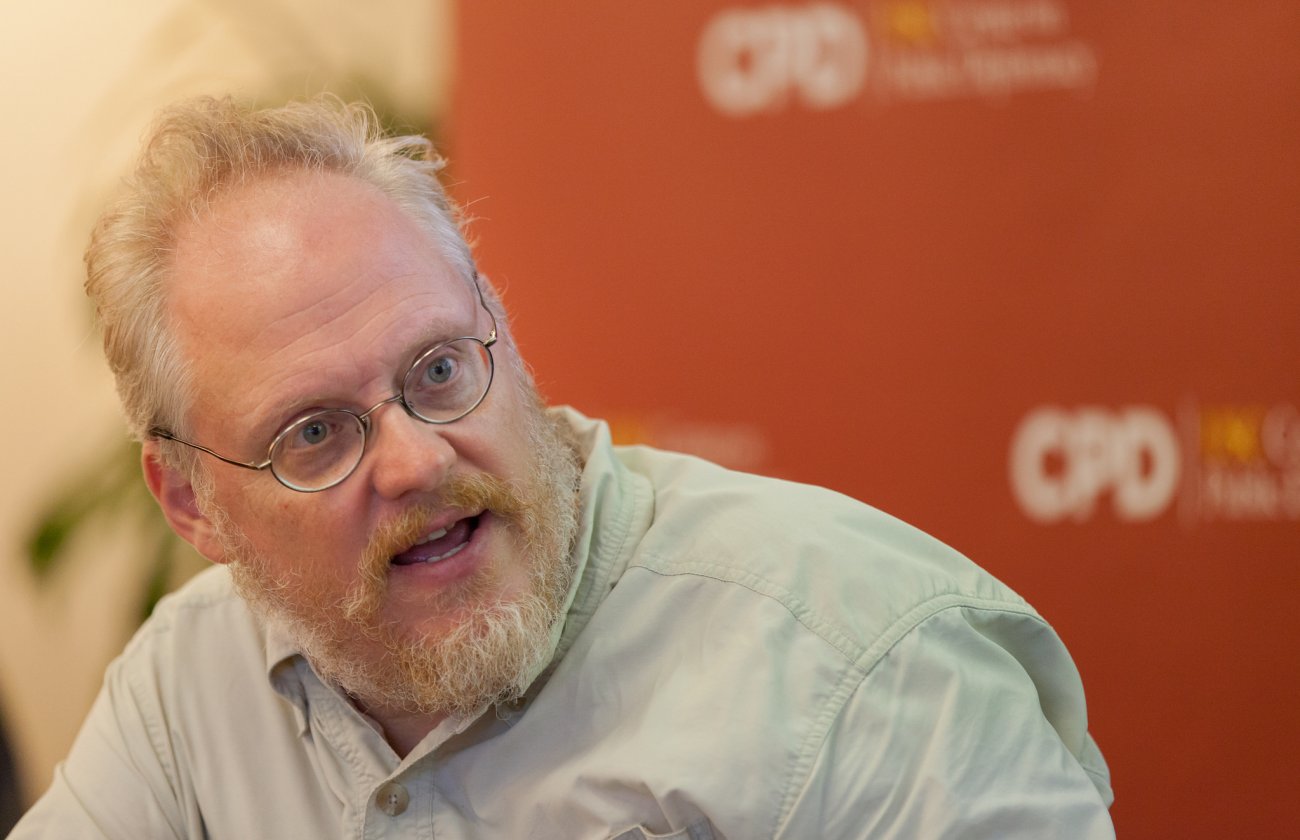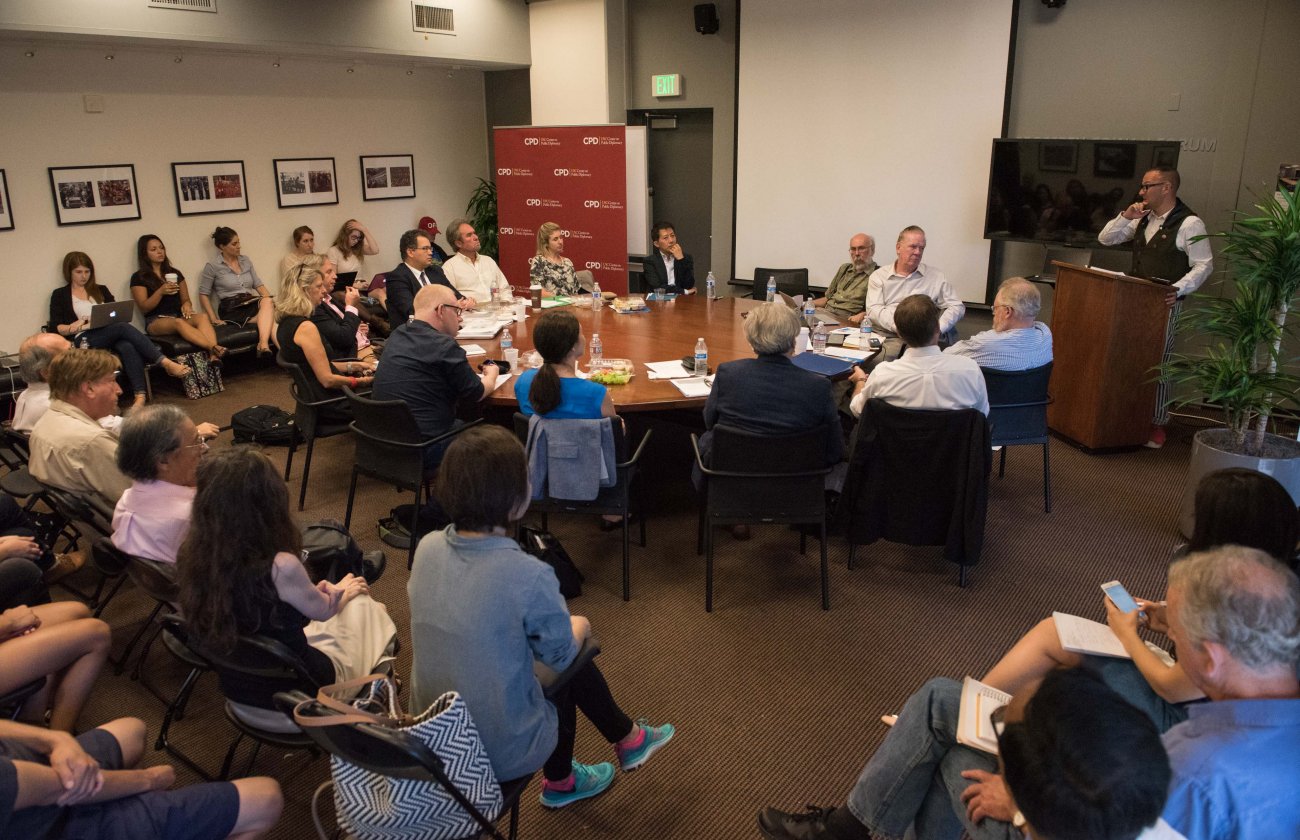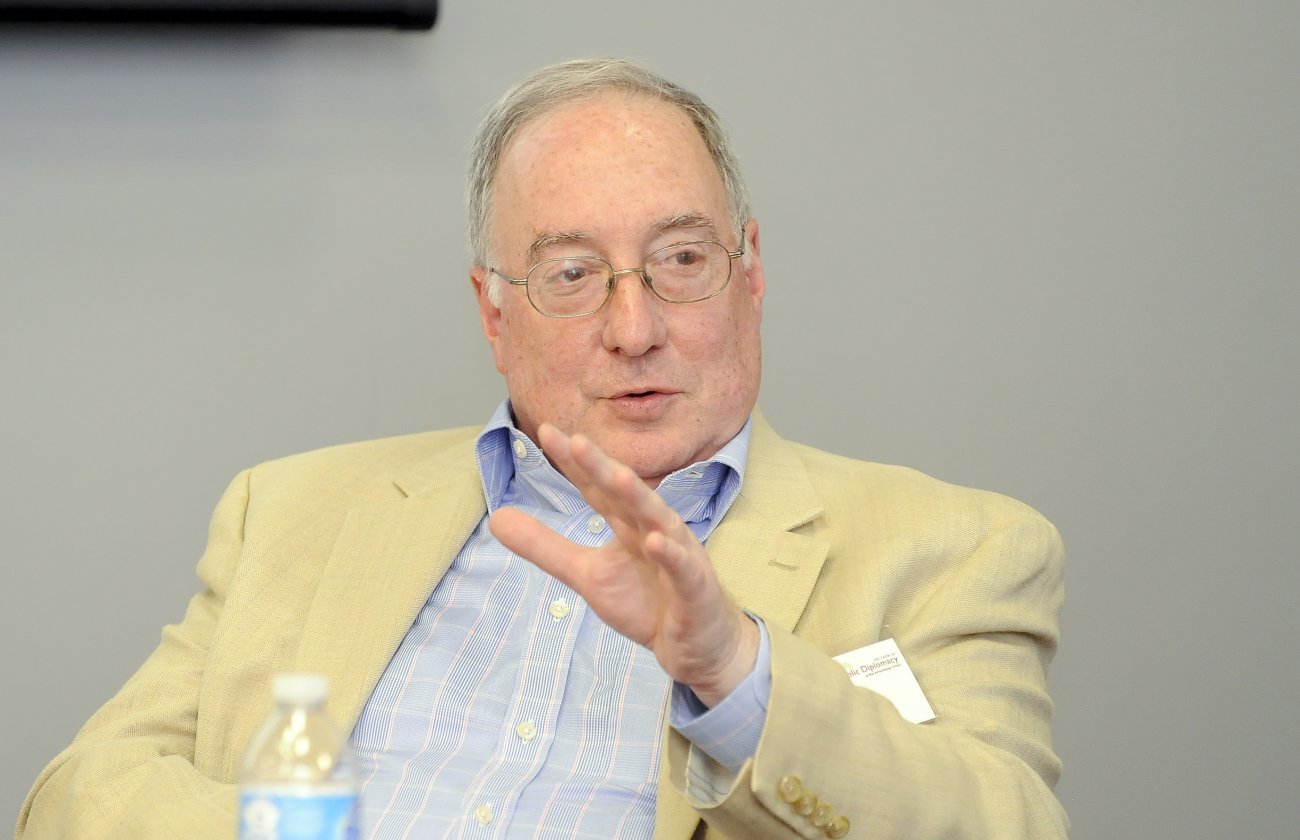As the Internet continues to grow and evolve, it becomes further intertwined within our daily lives. The Internet's transnational and horizontal nature, however, is at odds with traditional vertical governance structures, making its governance particularly challenging. Increased cooperation involving a multitude of actors and networks will prove key in addressing current and future Internet issues. This presents an opportunity for those who study diplomacy — especially public diplomacy — to help global stakeholders to explore new channels for effective communication and collaboration. With this in mind, faculty at the Annenberg School for Communication and Journalism at the University of Southern California (USC), in collaboration with the Internet Corporation for Assigned Names and Numbers (ICANN), held their first USC Annenberg Spring Institute in Internet Diplomacy from 13-19 March 2016, in Los Angeles, California.
The immersive week-long course brought together distinguished speakers and participants from across different sectors and geographies to exchange views and examine the socioeconomic and political implications of Internet-related issues. Special emphasis was placed on the synergies between the Internet and public diplomacy.
Class time was highly interactive, with a focus on establishing foundational knowledge of public diplomacy and public engagement issues, touching on approaches and processes associated with the global Internet. One of the key objectives of the course was to empower participants to contribute more effectively on the global stage. Participants were invited to think creatively about ways to leverage their knowledge and positions in advancing the dialogue with diverse stakeholders from across the world.
Course director, Nick Cull, Professor of Public Diplomacy at USC, spoke of the purpose of the program, noting that the intention was to "inform actors from across the world, those running international organizations, and other key decision-makers, about the growing field of Internet governance and empower them to communicate about these issues more effectively through public diplomacy approaches. It so was wonderful to see the diverse group of participants come together, gel, and generate their own perspectives on this important subject material.”
Advancing and preserving the multistakeholder model of Internet policy and governance emerged as a key theme throughout the week. Speakers and participants alike highlighted the importance of the model in ensuring that the Internet remains a global platform for the free exchange of ideas and commerce.
Outgoing ICANN President & CEO, Fadi Chehadé, stressed the importance of the program, noting that “we must bridge public diplomacy with Internet governance to develop a new class of digital diplomats, able to bring innovation to digital governance in order to keep pace with the speed and transnational nature of the Internet".
Other themes included the Internet governance ecosystem, human rights and leveraging networks and public diplomacy. Program participants were involved in a hands-on exercise that sought to draw on the knowledge and ideas shared throughout the week. Broken into three separate groups, participants were asked to address a set of concrete Internet issues -- in a series of hypothetical scenarios -- through a public diplomacy lense.
The need for integrating public diplomacy tools in the repertoire of decision-makers has become increasingly clear in light of the growing role of the Internet in our daily lives. This program is an important step forward in providing participants with a solid foundational basis for understanding the implications of the interrelationship between public diplomacy and the Internet.
The 20 program participants came from 13 different countries across Africa, Asia & Oceania, Europe, Latin America & Caribbean and North America. The group consisted of individuals from civil society, government, the private sector, technical and academic community.
Following is the full list of speakers and participants.
SPEAKERS
- Nora Abusitta, Senior Vice President, Development & Public Responsibility Programs, ICANN
- Fiona Alexander, Associate Administrator for the U.S. Department of Commerce's National Telecommunications and Information Administration’s (NTIA) Office of International Affairs (OIA)
- Jonathan Aronson, Professor of Communication, University of Southern California
- Robert Banks, Clinical Associate Professor of Public Diplomacy
- Vinton G. Cerf, Vice President and Chief Internet Evangelist, Google
- Fadi Chehadé, Outgoing President & CEO, Internet Corporation for Assigned Names and Numbers
- Steve Crocker, Chair, ICANN Board of Directors
- Nicholas J. Cull, Professor of Public Diplomacy, University of Southern California
- Alistair Fisher, Advisor, Strategist, and Author, WandrenPD.com
- Wolfgang Kleinwächter, Professor Emeritus, University of Aarhus
- Doe Mayer, Professor; Mary Pickford Chair, USC School of Cinematic Arts
- Nicco Mele, Senior Fellow, Center on Communication Leadership & Policy, University of Southern California
- Ed Morris, Independent Advocate
- Joseph S. Nye Jr., Distinguished Service Professor, Harvard University
- Kelton Rhoads, Adjunct Professor of Communication and Psychology, USC Annenberg School for Communication
PARTICIPANTS
- Muhammad Altaf, Network Engineer, National University of Sciences & Technology (NUST), Pakistan
- Daniel Aguirre Azócar, Scholar, Institute of International Studies, University of Chile
- Julian Esteban Lescano Cameriere, Legal Advisor, Lescano & Etcheverry Abogados, Buenos Aires, Argentina
- Kan Channmeta, Secretary of State, Ministry of Posts and Telecommunications, Kingdom of Cambodia
- Charles Chew, Director (International) InfoComm Development Authority of Singapore
- Larisa Gurnick, Director of Multistakeholder Strategy And Strategic Initiatives, Internet Corporation for Assigned Names and Numbers
- Jessica He, Visiting Scholar, Communication University of China
- Mads Jensen, Senior Politics, Press & Public Affairs Officer at British Consulate General Los Angeles
- Khaled Koubaa, Senior Technology Business and Policy Advisor
- Agnieszka Lisowska, Fulbright Schuman Scholar
- Ala Musi, Director of Policy and Law Committee of China E-Commerce Association
- Cheng Ouyang, Senior Advisor, Alibaba Group
- Ergys Ramaj, Director of Global Collaborations, Internet Corporation for Assigned Names and Numbers
- Adel Abdel-Sadek, Expert and CEO, Ahram Center for Political and Strategic Studies, Arab Center for Cyberspace Research
- Andrey Shcherbovich, Lecturer, National Research University Higher School of Economics, Moscow
- Carolina Sheinfeld, Project Coordinator, Legal Aid Foundation of Los Angeles
- Oleksandr Tsaruk, Chief Advisor, Parliament of Ukraine
- Junchao Wang, Professor, Journalism and Media Criticism, Tsinghua University, China
- Huafeng Xiao, Professor, Nanchang Hangkong University
- Piotr Zagorski, Doctoral Candidate, Universidad Autónoma de Madrid









